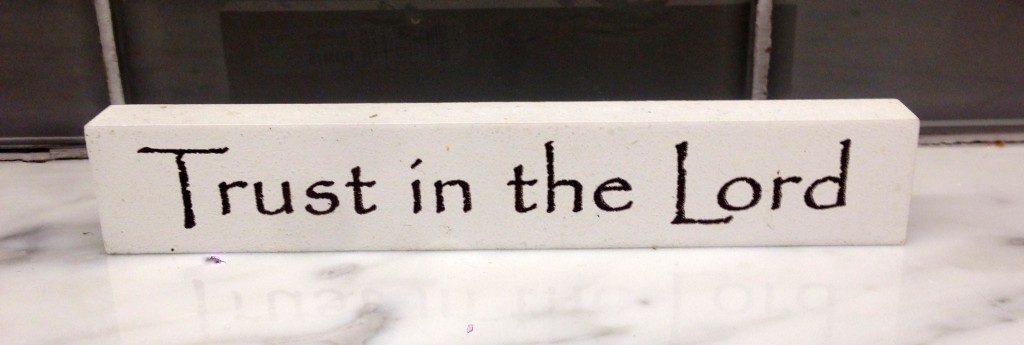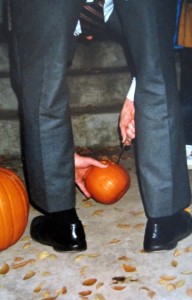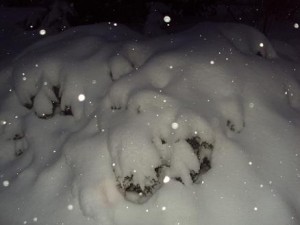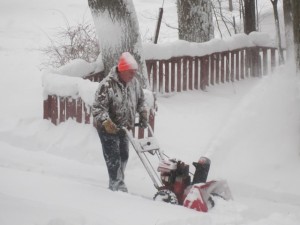The last couple of days we’ve been listening to a patient’s view of living with deadly cancer. Tonight Mary shares what works for her in fending off fear:
* * * * * * * * *
Whenever fear creeps into my thoughts, I know it hasn’t come from God. The Bible flat-out says, “God has not given us the spirit of fear.” (2 Timothy 1:7) So if it doesn’t come from him, it’s coming from my enemy, Satan. Because of that, I need to quickly reject it, making sure fear doesn’t take hold of me. The honest truth, though, is that I’ve had to struggle hard against it.
One fear that’s assaulted me multiple times this year centers around my grandchildren. When they first heard I had cancer, they began praying God would heal me. So my concern is that after I die, these trusting children might be angry with God for not answering their prayers, and turn against him.
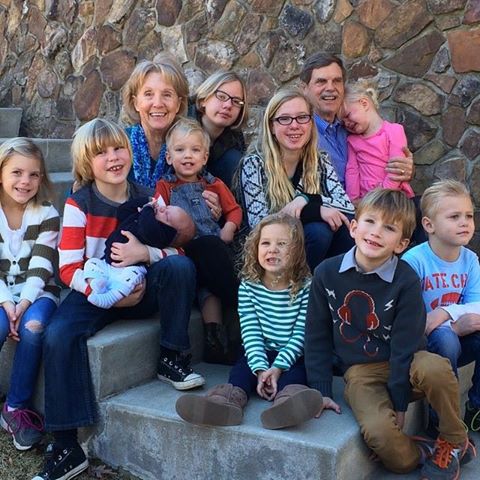 Right now they’re praying in the no-holds-barred way children do, which is why I worry. After I’m gone, I envision them asking, “If God loves me, why did he let my grandma die?” I want them all to love him no matter what happens with me, but that isn’t always easy for a child. Though I know I can’t control their lives, I have to fight fear over this issue.
Right now they’re praying in the no-holds-barred way children do, which is why I worry. After I’m gone, I envision them asking, “If God loves me, why did he let my grandma die?” I want them all to love him no matter what happens with me, but that isn’t always easy for a child. Though I know I can’t control their lives, I have to fight fear over this issue.
I have to repeatedly remember that their relationships with the Lord are in his capable hands. My continual prayer is for their faith to hold and even somehow grow as a result of my death. I’m thankful for God’s reminder that he’s caring for them now and will care for them then, especially where faith issues are concerned.
One day a while back, our daughter Julia gave me a plaque that sits on my kitchen counter. It simply says, “Trust in the Lord.” God has used that short message to bring me back to reality many times by dispelling fear. Of course I don’t want to leave my grandchildren any time soon, but that decision isn’t up to me.
The most effective antidote to fear is Scripture. It has the power to settle me and show me what’s true and what isn’t. God’s Word is an anchor that holds when storms come, because it has a power no other book has. It’s alive and active. It acts toward me in a way nothing else can, pointing me to the Lord and reminding me I’m not alone in my anxiety. He’s there battling the enemy alongside me, and his Word is a weapon against fear that never fails.
I don’t know how I could manage without the Lord accompanying me through this cancer. There isn’t a day that I don’t sense his closeness, and I’ll never stop thanking him for it. He has promised to be my ever-ready help whenever I need him and guarantees that my future is secure with him in heaven.
[ Tomorrow Mary will talk about you, blog readers. ]
“Commit your way to the Lord; trust in him, and he will act.” (Psalm 37:5)

